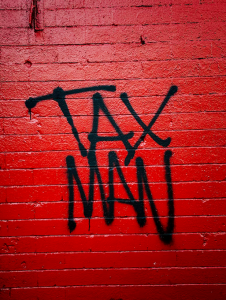A tax audit is at the top of the list of difficulties that no business wants. A tax audit might induce panic regardless of how carefully you operate your business. Remember that a tax audit is merely an annoyance for most business owners. However, it would help if you were prepared for this inconvenience.
税务审计是任何企业都不希望遇到的。无论你如何谨慎经营你的企业,税务审计可能会诱发恐慌。请记住,对大多数企业主来说,税务审计只是一种烦扰。然而,你必须为这种不便做好准备。
Why would the IRB Audit My Business?
Do not panic because the IRB has notified you that it will audit your business. IRB audit selection procedures do not necessarily indicate a problem. You may have been selected for an IRB audit because:
- Making a claim for large amounts of tax refund
- Using big data in accordance with the risk assessment criterion
- On the basis of particular concerns that are
- experienced by a certain category of taxpayers, such as the real estate development and manufacturing industries, as well as other sectors or
- associated with a particular location.
- Information collected from a third party regarding underdeclared or omission of income.
- Significant controlled transactions between related parties, particularly involving transfer pricing;
- Internal reference in the IRBM
- A significant drop in profits following the tax holiday;
- Tax evasion through the use of companies located in tax haven countries;
- A taxpayer who is benefiting from one or more tax incentives, such as reinvestment allowances (RA), pioneer status (PS), investment tax allowances (ITA), or any other similar tax incentives. The IRBM will investigate whether or not the conditions attached to each set of tax incentives have been satisfied.
What is a Tax Audit?
When referring to a check, review, verification, or inspection of a record, transaction, account, etc., the phrase “audit” is most commonly used.
The process of verifying and inspecting a taxpayer’s financial records to determine whether or not they have complied with the requirements of the Income Tax Act is referred to as a Tax audit.
What is the purpose of a Tax Audit?
The following goals are intended to be accomplished through the process of conducting tax audits:
- Books of account must be kept and checked for accuracy regularly,
- To guarantee that you comply with the numerous sections of the legislation governing income taxes, you must provide certain information.
- Audits of tax returns also guarantee that the taxpayer’s records accurately represent the taxpayer’s actual income and that any deductions or credits claimed by the taxpayer are accurate.

Tax Audit Framework (TAF)
It is unavoidable that tax audits have progressively become an integral component of the local taxation system, given that the self-assessment system has existed since 2001.
To make it easier for taxpayers to comply with their tax obligations under the self-assessment system, the Inland Revenue Board (IRB) developed the tax audit framework (TAF).
Since its publication in 2007, the TAF has been subject to various amendments and updates. Generally speaking, the TAFs are being changed to standardise the audit policies and methods.
New Tax Audit Frameworks
The Malaysian Inland Revenue Board (often known as “MIRB”) released the following new tax audit frameworks on its website on 29 April 2022, all of which are scheduled to become effective on May 1, 2022:
- Tax Audit Framework, which replaces the Tax Audit Framework dated 15 December 2019;
- Tax Audit Framework Finance and Insurance, which replaces the Tax Audit Framework Finance and Insurance dated 18 November 2020; and
- Tax Audit Framework Petroleum replaces the Tax Audit Framework Petroleum dated 15 December 2019.
The content of the TAFs is, for the most part, very comparable to the content of the preceding frameworks.
It is important to note that the above frameworks change the names of the two types of MIRB audit reviews:

The most important new features added to the Frameworks in 2022 are as follows:
Penalty Rates
For the 2022 Frameworks, the penalty for incorrect tax returns under Section 113(2) of the Income Tax Act 1967 (ITA 1967) or Section 52(2) of the Petroleum (Income Tax) Act 1967 (PITA), (from now on collectively referred to as “penalty”), will be imposed on tax undercharged at the following rates:

The previous frameworks had a penalty rate that was set at 45%.
A penalty rate of 55% was established for repeat offenders in the Tax Audit Framework dated 15 December 2019 and the Tax Audit Framework on Finance and Insurance dated 18 November 2020.
Technical Adjustment
By section 113(2) of the ITA 1967 and section 52(2) of the PITA, there will be no penalty imposed for any underpayment or omission of income about the audit findings that involve “technical adjustments”.
The phrase “Technical Adjustment” refers to various interpretations of the tax legislation determined by each instance’s specific circumstances and issues.
It does not apply to cases in which the IRBM has issued a Public Ruling, Guidelines, Practice Notes, Income Tax Regulations, Income Tax (Exemption) Order, or Income Tax Rules.
Tax Fraud
Suppose there is tax fraud, and it is discovered that the taxpayer made incorrect tax reporting deliberately. In that case, a penalty will be imposed by subsection 113(2) of the ITA and subsection 52(2) of the PITA at the rate of 100% on the underpaid tax.
First and Second Offence
The taxpayer’s record on the penalty that has been imposed under subsection 113(2) of the ITA/subsection 52(2) of the PITA from 1 January 2020 to 30 April 2022 is referred to for the purpose of determining the tax penalty rate for the first offence or the second offence.
If the taxpayer has not been penalised under subsection 113(2) of the ITA or subsection 52(2) of the PITA during the period from 1 January 2020 to 30 April 2022, any audit findings involving the imposition of penalties under subsection 113(2) of the ITA or subsection 52(2) of the PITA shall be considered the first offence (15%) beginning on 1 May 2022
On the other hand, if the taxpayer has been fined under subsection 113(2) of the ITA or subsection 52(2) of the PITA between January 1, 2020, and April 30, 2022, any audit findings from May 1, 2022, that involve fines under subsection 113(2) of the ITA or subsection 52(2) of the PITA will be counted as the second offence (30%).
Voluntary Disclosure
In voluntary disclosure cases, the maximum penalty amount allowed under subsection 113(2) of the ITA and subsection 52(2) of the PITA is 15%.
If, on the other hand, the taxpayer has already made their first voluntary disclosure through the Amended Tax Return Form and is making an additional voluntary disclosure within six (6) months of the date of their latest tax return, the taxpayer will only be subject to a 10% penalty rate for the voluntary disclosure that was made.
The 2022 TAFs are available on the IRB’s website – https://www.hasil.gov.my/en/legislation/tax-audit/.

The Three Phases of a Tax Audit
Beginning the process of resolving a tax audit can be a challenging exercise due to the complexity involved.
Pre-Audit
- Conduct a health check to identify potential risks and gaps in coverage and develop strategies to mitigate those risks.
- Prepare a capital statement to understand your tax profile and take the appropriate preventative measures.
- Before submitting anything to the IRB, there will be a review of the information and documents and an assessment of the tax risk.
During The Tax Audit
- Offer guidance on the various aspects of managing a tax audit or investigation.
- Discuss with the IRB the tax position taken and the rationale for doing so.
- Conduct negotiations with the IRB to obtain a mutually agreeable settlement.
Post Tax Audit
- After completing the tax audit, compile and assess any pertinent input.
- Focus on the future and develop necessary remedial action to minimise your potential tax obligations.
- The tax audit findings should revise for tax computations.
Through our team of committed tax specialists, CCS Tax Consultancy Sdn Bhd can provide a wide variety of tax services to our clients. Get in touch with us today!
Contact us: 03-9058 8313






